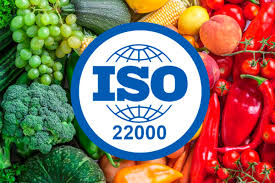ISO 20000 Certification: Enhancing IT Service Management Excellence
ISO/IEC 20000 is the international standard for IT Service Management (ITSM), providing a framework for delivering high-quality IT services. This certification is critical for organizations seeking to demonstrate their ability to efficiently manage IT services and meet customer expectations. Achieving ISO 20000 certification proves that an organization is committed to continuous improvement, efficient processes, and customer satisfaction in IT service delivery.
In this article, we’ll explore the importance of ISO 20000 certification, its key requirements, the certification process, and the benefits it offers organizations.
1. Importance of ISO 20000 Certification
ISO 20000 certification is essential for organizations aiming to improve their IT service management processes. It helps organizations align their IT services with business goals and customer expectations. The importance of ISO 20000 certification lies in the following:
- Enhancing Service Quality: ISO 20000 ensures that organizations deliver IT services that meet customer requirements and comply with relevant industry standards.
- Improved Efficiency: The certification requires organizations to implement best practices for managing IT services, leading to greater efficiency in service delivery and support.
- Customer Confidence: By obtaining ISO 20000 certification, an organization demonstrates its ability to provide consistent, high-quality IT services, which enhances customer satisfaction and trust.
- Competitive Advantage: ISO 20000 certification can differentiate an organization in a competitive market, signaling to clients and stakeholders that it follows internationally recognized best practices in IT service management.
2. Key Requirements of ISO 20000 Certification
ISO 20000 consists of a set of requirements that organizations must meet to obtain certification. These requirements are designed to help organizations implement an effective IT Service Management System (SMS). Some of the key requirements include:
- Service Management System (SMS): Organizations must establish, implement, and maintain an SMS that outlines how IT services will be managed to meet customer expectations. This includes defining roles, responsibilities, and processes for service delivery.
- Management Commitment: Top management must show a commitment to the SMS, ensuring the necessary resources are provided, and there is active involvement in reviewing and improving the system.
- Service Delivery Processes: ISO 20000 defines specific processes such as service level management, service reporting, budgeting, and continual service improvement (CSI) that ensure IT services are delivered effectively and efficiently.
- Design and Transition of New or Changed Services: Organizations must establish processes for designing and transitioning new or changed services, ensuring they meet business and customer requirements.
- Incident and Problem Management: Effective incident management processes must be in place to handle disruptions quickly, minimizing downtime and maintaining service continuity.
- Measurement and Evaluation: Continuous monitoring, measurement, and evaluation of IT service performance are necessary to identify areas for improvement and ensure the service meets quality standards.
By fulfilling these requirements, organizations can ensure a structured, systematic approach to IT service management, resulting in enhanced service quality and customer satisfaction.
3. The ISO 20000 Certification Process
Achieving ISO 20000 certification is a structured process that involves several steps to ensure compliance with the standard’s requirements. The key stages of the certification process include:
- Gap Analysis: Before pursuing certification, organizations should conduct a gap analysis to identify areas where their current IT service management practices do not meet ISO 20000 requirements. This initial assessment provides a roadmap for implementing necessary changes.
- Implementation of SMS: Organizations must then implement the necessary processes, tools, and frameworks to establish an effective SMS. This involves defining roles and responsibilities, creating service delivery processes, and ensuring management commitment.
Conclusion
ISO 20000 certification is a valuable tool for organizations seeking to improve their IT service management processes. By adhering to the best practices outlined in the standard, organizations can enhance service quality, manage risks, and optimize resources, ultimately leading to higher customer satisfaction and operational efficiency.
yariwin385 Details
User Profile
- Full name
- yariwin385
- Email address
- yariwin385@ofular.com
- Join Date
- 2025-05-23
- State
- City
- Pincode
- Address
- Follow us on Facebook
- Follow us on Twitter
- Website Name
- Bio

